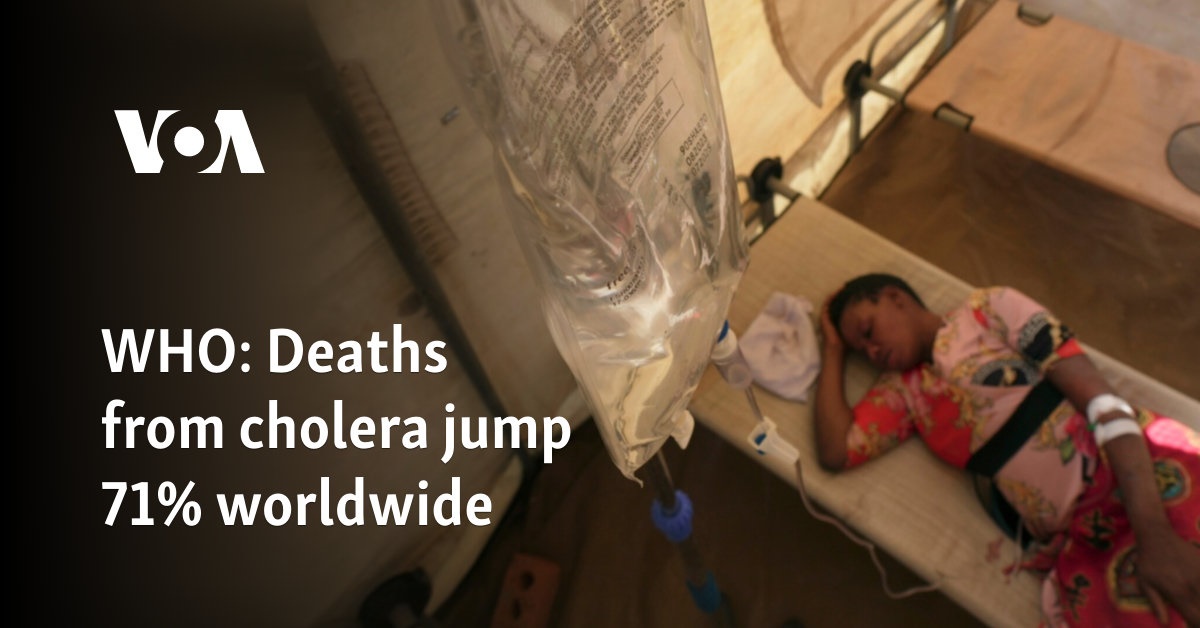The World Health Organization (WHO) reported Wednesday that reported cholera deaths worldwide last year surged 71 percent from the previous year to more than 4,000.
WHO Director-General Tedros Adhanom Ghebreyesus lamented the rising number of deaths from a “preventable and easily treatable” disease.
“Conflict, climate change, unsafe water and sanitation, poverty and displacement are all contributing to the increase in cholera outbreaks,” he added.
Cholera can be contracted through food or water contaminated with Vibrio cholerae, which can spread from people to drinking water or water used to prepare or grow food.
According to the US Centers for Disease Control and Prevention, symptoms of cholera include severe diarrhea, vomiting, increased thirst, leg cramps, restlessness and irritability.
The number of cholera cases is also expected to increase by 13% from 2022 to 2023, with 38% of reported cases being in children under the age of five, according to the WHO.
Cholera cases increased by 125 percent in Africa last year, while they fell by 32 percent in the Middle East and Asia. WHO report.
Data from 45 countries in 2023
WHO collected cholera statistics from 45 countries in 2023. In 2022, 44 countries submitted information and in 2021, 35 countries submitted their national figures.
The WHO said in its report this year that it was the first time that multiple countries had reported cholera deaths that occurred outside health facilities. The WHO said the so-called community deaths showed “serious gaps in access to treatment and the need to strengthen the sector's response.”
Infections have occurred in 22 countries this year
Countries reporting suspected or confirmed large-scale cholera outbreaks in 2023 include Afghanistan, the Democratic Republic of the Congo, Malawi and Somalia. Ethiopia, Haiti, Mozambique and Zimbabwe also reported outbreaks in 2023.
According to the WHO, preliminary data for 2024 shows that cholera continues to be endemic, with 22 countries recording active outbreaks.
A cholera vaccine exists, but only one company produces it and is unable to keep up with demand, and Tedros has called on other companies to start producing the vaccine.
The most important treatment for cholera is rehydration therapy, which aims to replace fluids lost through diarrhea and vomiting, according to the CDC, but the WHO says supplies are in short supply.
The WHO said it had requested $50 million for its cholera response but had not received the funds. The WHO said the need was “unmet.”




